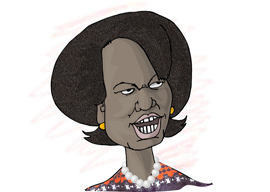
July 17, 2012

The first criterion in choosing a vice president, it is said, is that he or she must be qualified to be president.
Yet there is another yardstick by which candidates measure running mates. Do they bring something to the table? Can they help with a critical voting bloc? Can they bring a crucial state?
Lyndon Johnson is regarded as a brilliant choice by JFK, though his brother Bobby, among others in the Kennedy camp, loathed LBJ. LBJ locked up Texas and helped bring home five other former Confederate states for the Roman Catholic nominee from Boston.
In deciding on a vice president candidate, many considerations have to be running through Mitt Romney’s mind.
His choice must be seen as ready to be president or at least able to attain that status in short order, and augment his strength with a strategic constituency or help corral a major state he would otherwise have difficulty winning.
Then there is the iron rule of the Hippocratic Oath: Primum non nocere. First, do no harm. The VP candidate also should be conversant with a panoply of issues, fully prepared to defend the nominee’s positions on domestic, foreign and economic policies.
Such considerations suggest that whoever in Romney’s camp floated the name of Condi Rice to The Drudge Report last weekend was more concerned with changing the subject from Bain Capital and the Caymans than in signaling where the candidate’s head and heart are today.
That Rice is accomplished and competent is not in dispute. But should Romney choose her, within hours we would be re-litigating the Iraq War. It was, recall, Rice who slapped down skeptics of that war by implying their reluctance to invade Iraq might just be risking a nuclear surprise attack on the United States.
“There will always be some uncertainty about how quickly Saddam can acquire nuclear weapons,” said Rice. “But we don’t want the smoking gun to be a mushroom cloud.”
Rice was George W. Bush’s leading saleslady for a war that cost America $1 trillion, 4,500 dead and 35,000 wounded, and cost the Republican Party both houses of Congress in 2006 and the presidency in 2008. That war is today regarded by many U.S. foreign policy scholars as among the greatest strategic blunders in American history.
Should Rice be chosen, she will be spending much of the campaign defending her role in that war. And Gov. Romney will find himself defending, or disagreeing with, what George W. Bush did a decade ago.
Rice is by her own admission “mildly pro-choice” on abortion, a position mildly anathema to religious conservatives, the foot soldiers of the party, many of whom have been only lately won over to the governor himself.
Rice’s whole career has been devoted to foreign policy. Can she be brought up to speed in weeks to learn and recite the new catechism of the party and defend it from a hostile press or in debate with Joe Biden?